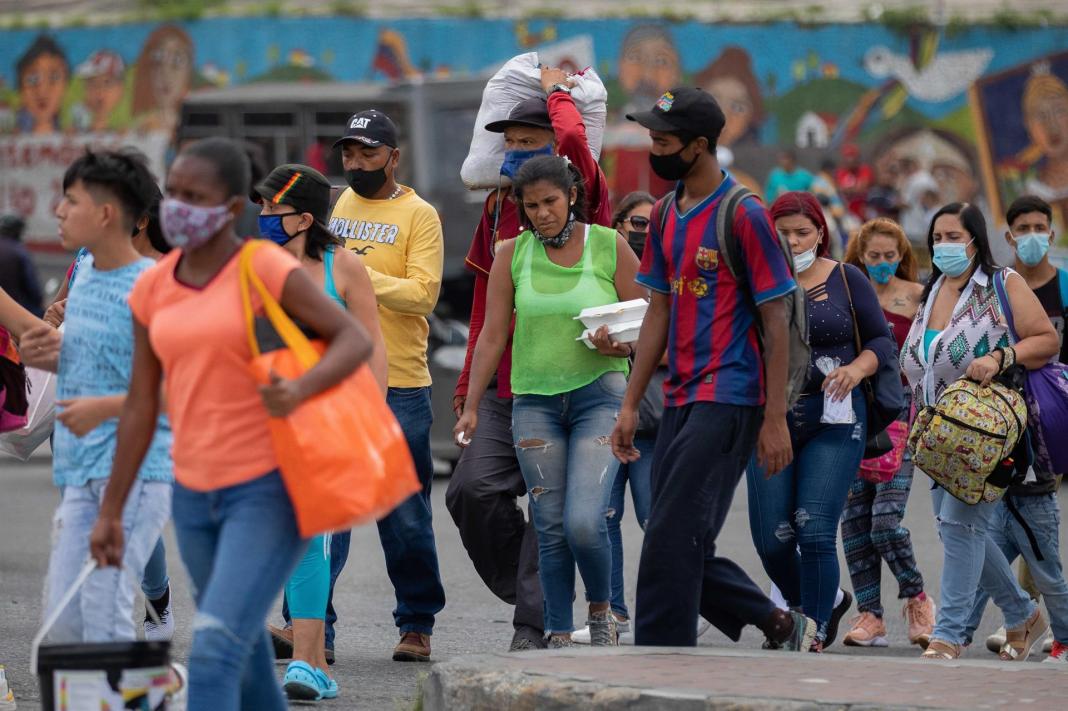Venezuelans live with very different attitudes the process of dialogue that the Government and the opposition started last Friday in Mexico, with the initial objective of seeking peace and a solution to the crisis: optimism, skepticism or disinterest are some of the states of encouragement in the face of negotiations that could change everything or go unnoticed.
An optimistic pensioner, a housewife who is not aware or an engineer who does not believe that something will change in the country are some of the examples of how Venezuela lives, from a distance, the meetings between government officials and opponents, and that they have some bleak precedents.
Santo Domingo and Barbados were the scenes of two failed dialogues, in 2018 and 2019 respectively, which suggest that Mexico could be another one to add to the unfortunate list.
On this occasion, President Nicolás Maduro demands the lifting of sanctions , including the “recognition of the legitimate authorities” of the country, currently without support from the international community, and the “renouncement of violence”
DISPARATE HOPES
Despite previous failures, 72-year-old retired Victor Urdaneta told Efe that he sees the new attempt as “quite positive” and hopes that these talks will lead to the lifting of international sanctions against Venezuela, under a government of which it is said related.
With a more disinterested attitude, Tibisay Rojas, a 69-year-old housewife, says she has no information about it. He does not know the members of the delegations or the items on the agenda. Despite everything, she hopes that the problems that afflict her and thousands of Venezuelans in the country will be taken into account.
Contrary to Rojas, Daniel Conteras, 65, is well informed. Knowing the processes of failed dialogues that have occurred in the past, he prefers to be cautious and keep his expectations low.
“Several meetings have already been held, several cycles and no agreement has been reached in the previous processes, we have to wait to see,” he told Efe.
If Daniel could bring an issue to Mexico, the first item on the agenda “would be general elections at all levels.”
Mauricio, a mechanical engineer who has not revealed his age or last name, is blunt in saying that the negotiation “does not work.”
“The opposition has made us lose all this time, because they did not call an election,” says the man, who insists that “these people (government and opposition) are useless.”
“Are you going to tell me that during all this time the Government has not been able to solve the economic issues that we have?”
“POLITICAL ORFANDY”
The ORC Consultores firm has found in its latest studies what it calls a “political orphan situation” , that is, Venezuelans, for the most part, do not feel a connection with any of the political leaders.
Oswaldo Ramírez, director of the company, explains to Efe that “clearly today the expectation (of citizens) regarding the negotiation is relatively low.”
“There is no connection with Nicolás Maduro and there is no connection with Juan Guaidó, there is no connection with union leaders, there is no connection with business, media, there is no connection with religious,” he says.
Ramírez explains that this “orphan situation” has led citizens to be “adrift” from any certain possibility of agreement (…) because, a priori, what citizens want is that daily problems be resolved ” .
“The common citizen is waiting for the deep crisis of public services to be resolved, for conditions to be given to have a better quality of life, which is tied to all the economic processes that have been experienced with dollarization,” the consultant clarifies.
Venezuela is going through a deep crisis , which is approaching its eighth year in recession and fourth with hyperinflation that has dissolved the value of the local currency, the bolivar, and paved the way for the use of the dollar.
According to ORC Consultores , 80% of Venezuelans want a “change”, but that does not mean that eight out of 10 Venezuelans would vote for the opposition that exists in the country today. EFE


















































































